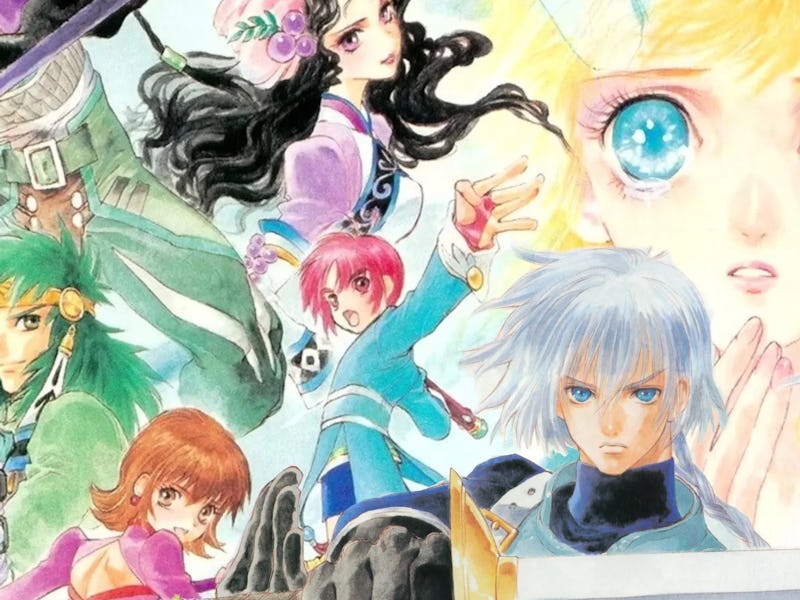20 Years Later, a Long-Lost RPG Is Finally Playable in English Thanks to a Fan Translation
Back from the grave.

The Tales series is one of the longest-running RPG franchises out there, celebrating its 30th anniversary in 2025. Those decades have seen the release of dozens of different games, but not every one has made its way outside of Japan. There are some key titles that Western fans have been hoping to see for decades, and chief among those is Tales of Rebirth. Twenty years after its original release, Tales of Rebirth is finally playable in English for the very first time — thanks to an enterprising fan translation from Life Bottle Productions.
Tales of Rebirth was originally released on PS2 in 2004, and then re-released on PSP in 2008 — but sadly, only ever in Japan. This fan translation has been in the works for years, and finally hit the point where the entire game has been converted to English. But there are even some new features added into the mix, like subtitles for animated movies, battle subtitles, and two additional movies removed from the PS2 version but added back into the PSP version. If you’re unfamiliar with the world of manually patching games, Life Bottle also has a handy video guide to walk you through the process.
Chronologically, Tales of Rebirth is the sixth mainline titles of the Tales franchise, releasing just one year after Tales of Symphonia. It was one of the last games to use the series’ trademark Linear Motion Battle System, meaning battles played out on a 2D plane — instead of a 3D arena. The big twist in Rebirth is that battles have three different lanes you can switch between, and you’ll need to in order to take out enemies that are attacking from other lanes. It adds a fascinating dimension to the typical 2D system and can be a bit tough to wrap your head around at first, but ultimately feels incredibly unique.
Past that, it has all the hallmarks of the Tales series, from skits to lengthy dungeons, but its story is generally regarded as one of the best in the franchise.
Rebirth was the last game to use sprite art in the franchise, before future games would use 3D models.
Rebirth takes place in a world where humans (Huma) and beast people (Gajuma) coexist mostly in peace. Most people can also use a magical power called Force, which manifests in each person to give them control over an element. The story of the games open with shady forces reigniting an ancient conflict and tensions between Huma and Gajuma, with the king of a country called Karegia getting assassinated. The king unleashes his magical power into the world, which causes a huge swathe of Huma to awaken to Force, including the game’s protagonist, an Orphan named Veigue. More than anything, Rebirth’s characters feel grounded and believable. Tales is no stranger to themes of prejudice, and Rebirth dives full-force into that idea with its world and lore.
It’s great that fans finally have a way to play Rebirth in English, as it’s one of the key mainline titles missing. There are plenty of Tales spinoffs that haven’t made it West, but in terms of mainline games it’s just Rebirth, Tales of Innocence, and Tales of Destiny 2 that haven’t had “official” localizations. That last one is not to be confused with the “Tales of Destiny 2” that released on PS1 back in the day, which was actually Tales of Eternia rebranded for the United States.
Rebirth’s fascinating combat system can be incredibly challenging until you get the hang of it.
This also isn’t the first translation Life Bottle has released, as it’s also done the same for Tales of Innocence R and Tales of Hearts R - Infinite Evolve, both of which you can find on its website. The group has also announced huge plans to continue translating a handful of other Tales games, including Tales of Phantasia X, the fighting games Tales of VS., and Tales of the Heros: Twin Braves, among others.
Of course, there’s still some chance we could see an official release of some of these Bandai Namco games. The franchise is finally coming back in January 2025 with a remaster of Tales of Graces F. During a recent 30th anniversary stream, series producer Yusuke Tomizawa also revealed a “dedicated” team has been established entirely for Tales remasters, and Bandai Namco hopes to release remastered games “fairly consistently.” That sounds like it opens a lot of potential, but one way or another, Tales fans will find a way to play the games they’ve missed.